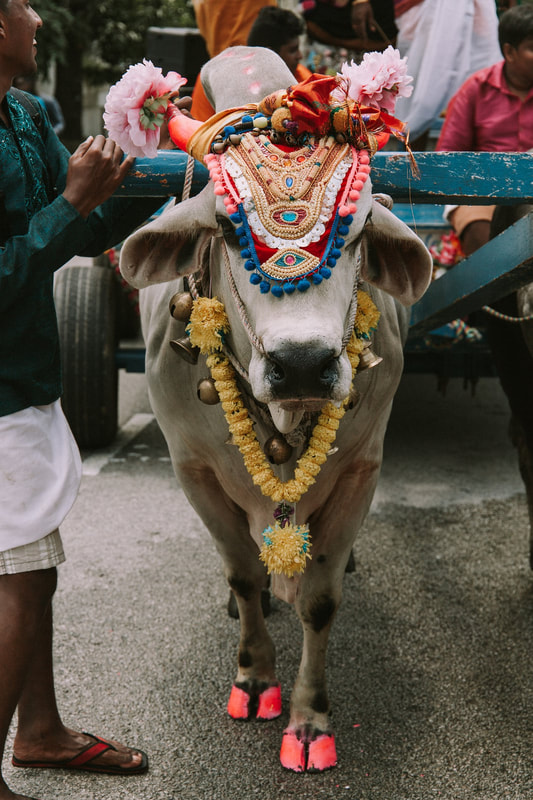“I am the son of Earth, Earth is my Mother"
(Aharva-Veda 12.1.12.)
As this quote shows, Hindus consider the Earth to be a goddess (Devi) and a mother who nourishes, shelters, and clothes her children. Many Hindu rituals recognize how we benefit from the Earth and show gratitude in return, for example, by creating daily kolams (artwork made out of rice or other food) in order to offer substance to the Earth.
|
Hindus believe that we, our common planet and all its inhabitants have emerged from the Divine, as related by the Rig Veda:
“Nature's beauty is an art of God. Let us feel the touch of God's invisible hands in everything beautiful. By the first touch of His hand, rivers throb and ripple. When He smiles, the sun shines, the moon glimmers, the stars twinkle, the flowers bloom. By the first rays of the rising sun, the universe is stirred; the shining gold is sprinkled on the smiling buds of rose; the fragrant air is filled with sweet melodies of singing birds, the dawn is the dream of God's creative fancy” (Rig Veda 1.6.3.) Hinduism contains many examples of the omnipresence of divinity in nature. For example the river Ganges is often considered a goddess. The universe and everything in it has intrinsic value and does not exist for the sake of humans. Thus, all of life is worthy of respect. Hindus believe that all plants and animals have souls and enjoy the same importance in the universe. To kill any of them, one needs to perform a daily penance called visva deva. It is an offering of prepared food to the Creator to ask for His pardon. Protecting the environment is considered an expression of Dharma (often translated as duty or virtue) and can also positively influence karma. Non-violence (ahimsa) towards the Earth and other animals also improves one’s karma and is the reason why many Hindus follow a vegetarian diet and avoid killing animals. |

